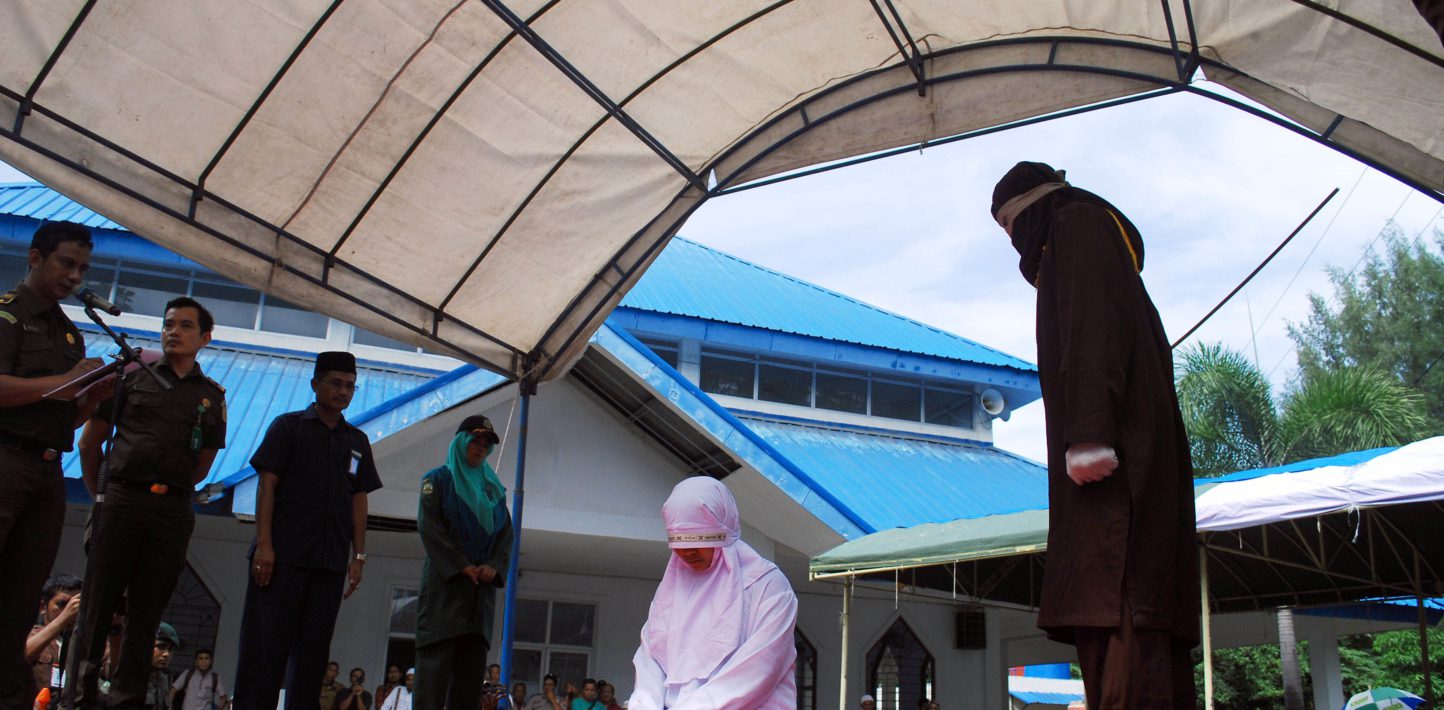Responding to the news that two women were each publicly whipped around 100 times this week in Langsa City, Aceh, for selling sex online, Amnesty International Indonesia Executive Director, Usman Hamid, said:
“Flogging is a cruel and inhumane practice that causes both physical and mental trauma. It’s a punishment that must never be normalized nor tolerated.
“Public floggings are an all too regular occurrence in Aceh Province. We call on the Aceh authorities to repeal all regulations that can result in this appalling and degrading treatment.
“Central government must not remain silent, but condemnation alone is not sufficient. We urge the Indonesian government to repeal all regulations that contradict international law and standards. We are also calling on the government to repeal all regulations which criminalize or otherwise punish sex workers and introduce legal protections from intimidation.”
Background
The flogging was conducted on Monday 27 July, reportedly in front of dozens of onlookers. The two women were found guilty of selling sex online, in violation of Islamic Criminal Code in Aceh (Qanun Jinayah). They were arrested in May along with five other sex workers, who could also face a flogging if found guilty of violating Qanun Jinayah.
Amnesty International Indonesia has documented that Aceh authority has so far handed down 37 flogging punishments against 173 people, who were found guilty of violating the Qanun, in 2020. Most of the cases are khalwat (affectionate contact by an unmarried persons) and ikhtilat (intimacy or mixing).
Aceh is the only Muslim-majority province in Indonesia that implements Islamic law (Sharia Law). The Aceh Islamic Criminal Code (Qanun Jinayat) was passed by the Aceh parliament (DPRA) in 2014 and came into effect throughout Aceh Province on 23 October 2015.
Punishable offences include same-sex sexual relations, premarital sex and other sexual relations outside marriage (“adultery” or zina), consumption of alcohol (khamar), gambling (maisir), “being alone with someone of the opposite sex who is not a marriage partner or relative” (khalwat), committing sexual intimacy outside marriage (ikhtilath), sexual abuse, rape, accusing a person of adultery without providing four witnesses, and intimacy between unmarried persons.

